Related Research Articles

The Battle of Stalingrad was a major battle on the Eastern Front of World War II, beginning when Nazi Germany and its Axis allies attacked and became locked in a protracted struggle with the Soviet Union for control over the Soviet city of Stalingrad in southern Russia. The battle was characterized by fierce close-quarters combat and direct assaults on civilians in aerial raids; the battle epitomized urban warfare, being the single largest and costliest urban battle in military history. It was the bloodiest and fiercest battle of the entirety of World War II—and arguably in all of human history—as both sides suffered tremendous casualties amidst ferocious fighting in and around the city. The battle is commonly regarded as the turning point in the European theatre of World War II, as Germany's Oberkommando der Wehrmacht was forced to withdraw a considerable amount of military forces from other regions to replace losses on the Eastern Front. By the time the hostilities ended, the German 6th Army and 4th Panzer Army had been destroyed and Army Group B was routed. The Soviets' victory at Stalingrad shifted the Eastern Front's balance of power in their favour, while also boosting the morale of the Red Army.

Fascism is a far-right, authoritarian, and ultranationalist political ideology and movement, characterized by a dictatorial leader, centralized autocracy, militarism, forcible suppression of opposition, belief in a natural social hierarchy, subordination of individual interests for the perceived good of the nation or race, and strong regimentation of society and the economy. Opposed to anarchism, democracy, pluralism, egalitarianism, liberalism, socialism, and Marxism, fascism is at the far right of the traditional left–right spectrum.
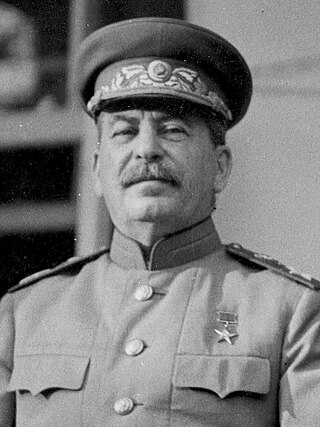
Joseph Vissarionovich Stalin was a Soviet politician, revolutionary, and political theorist who led the Soviet Union from 1924 until his death in 1953. He held power as General Secretary of the Communist Party from 1922 to 1952 and as Chairman of the Council of Ministers from 1941 until his death. Initially governing as part of a collective leadership, Stalin consolidated power to become a dictator by the 1930s. He codified his Leninist interpretation of Marxism as Marxism–Leninism, while the totalitarian political system he established became known as Stalinism.
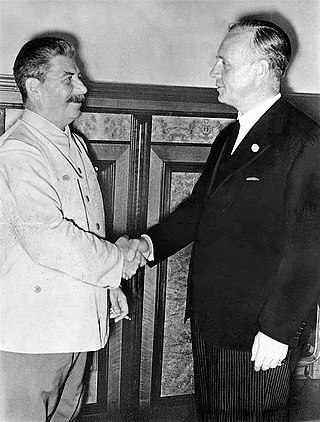
The Molotov–Ribbentrop Pact, officially the Treaty of Non-Aggression between Germany and the Union of Soviet Socialist Republics, and also known as the Hitler–Stalin Pact and the Nazi–Soviet Pact, was a non-aggression pact between Nazi Germany and the Soviet Union, with a secret protocol establishing Soviet and German spheres of influence across Eastern Europe. The pact was signed in Moscow on 24 August 1939 by Soviet Foreign Minister Vyacheslav Molotov and German Foreign Minister Joachim von Ribbentrop.

Operation Barbarossa was the invasion of the Soviet Union by Nazi Germany and many of its Axis allies, starting on Sunday, 22 June 1941, during World War II. It was the largest and costliest land offensive in human history, with around 10 million combatants taking part, and over 8 million casualties by the end of the operation.
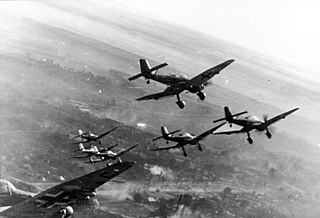
World War II or the Second World War was a global conflict between two coalitions: the Allies and the Axis powers. Nearly all the world's countries—including all the great powers—participated, with many investing all available economic, industrial, and scientific capabilities in pursuit of total war, blurring the distinction between military and civilian resources. Tanks and aircraft played major roles, with the latter enabling the strategic bombing of population centres and delivery of the only two nuclear weapons ever used in war. World War II was the deadliest conflict in history, resulting in 70 to 85 million deaths, more than half being civilians. Millions died in genocides, including the Holocaust of European Jews, as well as from massacres, starvation, and disease. Following the Allied powers' victory, Germany, Austria, Japan, and Korea were occupied, and war crimes tribunals were conducted against German and Japanese leaders.
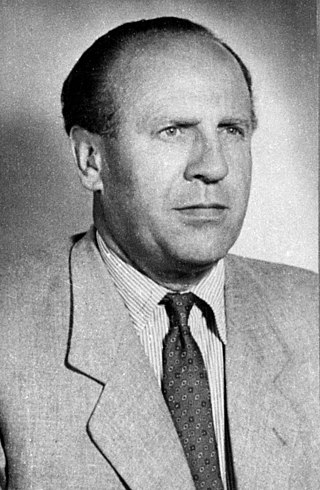
Oskar Schindler was a German industrialist, humanitarian, and member of the Nazi Party who is credited with saving the lives of 1,200 Jews during the Holocaust by employing them in his enamelware and ammunitions factories in occupied Poland and the Protectorate of Bohemia and Moravia. He is the subject of the 1982 novel Schindler's Ark and its 1993 film adaptation, Schindler's List, which reflect his life as an opportunist initially motivated by profit who came to show extraordinary initiative, tenacity, courage, and dedication in saving his Jewish employees' lives.

Nosferatu: A Symphony of Horror is a 1922 silent German Expressionist vampire film directed by F. W. Murnau from a screenplay by Henrik Galeen. It stars Max Schreck as Count Orlok, a vampire who preys on the wife of his estate agent and brings the plague to their town.

Robert Bosch GmbH, commonly known as Bosch, is a German multinational engineering and technology company headquartered in Gerlingen, Baden-Württemberg, Germany. The company was founded by Robert Bosch in Stuttgart in 1886. Bosch is 94% owned by the Robert Bosch Stiftung, a charitable institution. Although the charity is funded by owning the vast majority of shares, it has no voting rights and is involved in health and social causes unrelated to Bosch's business.

The Meuse–Argonne offensive was a major part of the final Allied offensive of World War I that stretched along the entire Western Front. It was fought from September 26, 1918, until the Armistice of November 11, 1918, a total of 47 days. The Meuse–Argonne offensive was the largest in United States military history, involving 1.2 million French, Siamese, and American soldiers, sailors and marines. It is also the deadliest campaign in the history of the United States Army, resulting in over 350,000 casualties, including 28,000 German lives, 26,277 American lives and an unknown number of French lives. American losses were worsened by the inexperience of many of the troops, the tactics used during the early phases of the operation, and the widespread onset of the global influenza outbreak called the "Spanish flu."

Jean-Baptiste Nicolas Robert Schuman was a Luxembourg-born French statesman. Schuman was a Christian democratic political thinker and activist. Twice Prime Minister of France, a reformist Minister of Finance and a Foreign Minister, he was instrumental in building postwar European and trans-Atlantic institutions and was one of the founders of the European Communities, the Council of Europe and NATO. The 1964–1965 academic year at the College of Europe was named in his honour. In 2021, Schuman was declared venerable by Pope Francis in recognition of his acting on Christian principles.

Adolf Hitler was an Austrian-born German politician who was the dictator of Nazi Germany from 1933 until his suicide in 1945. He rose to power as the leader of the Nazi Party, becoming the chancellor in 1933 and then taking the title of Führer und Reichskanzler in 1934. His invasion of Poland on 1 September 1939 marked the start of the Second World War. He was closely involved in military operations throughout the war and was central to the perpetration of the Holocaust: the genocide of about six million Jews and millions of other victims.
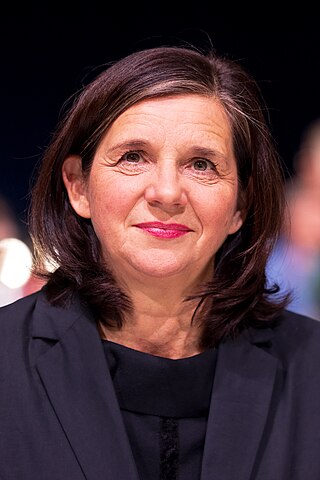
Katrin Dagmar Göring-Eckardt is a German politician of the German Green Party. Starting her political activity in the now-former German Democratic Republic in the late 1980s, she has been a member of the German Bundestag since 1998. She became co-chair of her party caucus in the Bundestag (2002–2005) and the Greens' Vice President of the Bundestag on 18 October 2005, a position that she held until 2013 and would later reprise in 2021. In the November 2012 primary election, the Green Party chose her and Jürgen Trittin as the top two candidates for the Greens for the 2013 German federal election. She also stood as joint top candidate for the Greens in the 2017 German federal election, alongside Cem Özdemir..

Robert Enke was a German professional footballer who played as a goalkeeper.
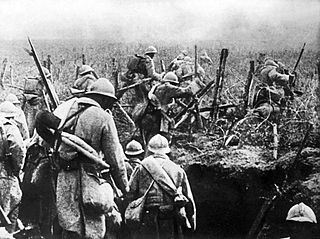
World War I or the First World War, also known as the Great War, was a global conflict between two coalitions: the Allies and the Central Powers. Fighting took place mainly in Europe and the Middle East, as well as in parts of Africa and the Asia-Pacific, and in Europe was characterised by trench warfare; the widespread use of artillery, machine guns, and chemical weapons (gas); and the introductions of tanks and aircraft. World War I was one of the deadliest conflicts in history, resulting in an estimated 10 million military dead and more than 20 million wounded, plus some 10 million civilian dead from causes including genocide. The movement of large numbers of people was a major factor in the deadly Spanish flu pandemic.

Robert Lewandowski is a Polish professional footballer who plays as a striker for La Liga club Barcelona and captains the Poland national team. Regarded as one of the best strikers of all time, he is one of the most successful players in Bundesliga and Bayern Munich history. He has scored over 600 senior career goals for club and country.

After the Munich Agreement, the Soviet Union pursued a rapprochement with Nazi Germany. On 23 August 1939, the Soviet Union signed a non-aggression pact with Germany which included a secret protocol that divided Eastern Europe into German and Soviet spheres of influence, anticipating potential "territorial and political rearrangements" of these countries. Germany invaded Poland on 1 September 1939, starting World War II. The Soviets invaded eastern Poland on 17 September. Following the Winter War with Finland, the Soviets were ceded territories by Finland. This was followed by annexations of the Baltic states and parts of Romania.

Military brothels were set up by Nazi Germany during World War II throughout much of occupied Europe for the use of Wehrmacht and SS soldiers. These brothels were generally new creations, but in the west, they were sometimes expansions of pre-existing brothels and other buildings. Until 1942, there were around 500 military brothels of this kind in German-occupied Europe, serving travelling soldiers and those withdrawn from the front. According to records, a minimum of 34,140 European women were forced to serve as prostitutes during the German occupation of their own countries along with female prisoners of concentration camp brothels. In many cases in Eastern Europe, teenage girls and women were kidnapped on the streets of occupied cities during German military and police round ups called łapanka in Polish or rafle in French.

Robert Habeck is a German politician and writer who has been serving as Vice Chancellor of Germany, Federal Minister for Economic Affairs and Climate Action in the cabinet of Chancellor Olaf Scholz and as a Member of the German Bundestag for Flensburg – Schleswig since 2021. From 2018 to 2022, he also served as co-leader of Alliance 90/The Greens, alongside Annalena Baerbock. For the 2021 German federal election, he was a member of the leading duo, alongside Baerbock, who ran for chancellor of Germany.

"Bewahre uns, Gott" is a Christian hymn with text by Eugen Eckert to a melody from Argentina, of "La paz del Señor". The song of the genre Neues Geistliches Lied, a prayer for protection in hard times, is contained in several hymnals and songbooks ecumenically. Several of these list it as "Bewahre uns, Gott, behüte uns, Gott"
References
- ↑ "Mawick, Robert" (in German). Kicker . Retrieved 10 August 2012.